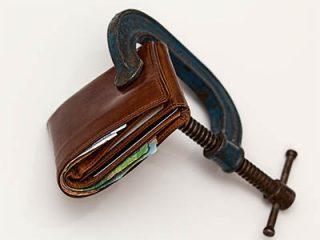 Investors seeking a monthly income from rental properties in the UK are having major issues. Many investors are finding difficulties securing buy-to- let mortgages as they simply don’t *stack*.
Investors seeking a monthly income from rental properties in the UK are having major issues. Many investors are finding difficulties securing buy-to- let mortgages as they simply don’t *stack*.
This means that the mortgage payment is too high in comparison to the rent that can be collected. Most lenders require 130% rent to mortgage ratio, thus if a house rents for £650 the mortgage must be £500 or below to stack (or qualify). With the current market and raised interest rates, investors are finding it difficult to find deals that meet the lenders requirements.
The Association of Residential Lettings Agents (ARLA), stated that the average rental return in the UK is just 5%. So if you own a house worth £100,000 your return (or cash from rent ) is only £5,000/year or £416/month…
When interest rates were lower, the yield was higher thus making investing in the UK buy-to- let scene more profitable.
John Smalls, an overseas property advisor, said, “UK investors are now looking for alternative buy-to- let opportunities and many people are simply buying a second home overseas and letting it out for a portion of the year to cover costs. There are some outstanding opportunities for investors and people buying overseas.”
Not only is property cheaper, capital appreciation rising but the yields in some areas are amazing.
Last year in 2004 prices rose over 30% in Latvia and rental yields hit 8% in Montenegro (formerly part of Yugoslavia) hit yields as high as 15% France and Spain are achieving yields of around 6% and the cost of European mortgages are considerably lower than those in the UK.
And what about property prices? The average home in the UK is £159,947 (source: Halifax) however overseas you can find quality properties for as little as £20,000 BUT – you must do your research. It’s imperative to know the rental market, understand the tourism industry, discover local laws/regulations and ensure that the investment makes sense.
So – how do you buy a property overseas?
The easiest way is to take equity out of your UK home (releasing equity) as many lenders will allow you to borrow up to 90% of a property’s value.
You can buy a property outright or get a mortgage. Experts advise that those buyers who get a mortgage take one out in the currency of the country they buy in rather than in British Sterling. If you use Euros to charge rent, you can then pay your mortgage without dealing with currency fluctuations.
If you repay your mortgage in Sterling but have a Euro mortgage, you could have issues if the Euro strengthens against the pound (unless of course, you’ve fixed a rate of exchange with a currency broker ahead of time).
For example, on a E100,000 (£69,000) mortgage, you’d pay E500/month (£345/month) if the exchange rate was E1.45 to the pound. However, if the rate went down to E1.30 to the pound, the monthly repayment would increase to £385.
To avoid these issues, you can:
- Simply get a Euro mortgage and charge in Euros
- Fix your exchange rates with a currency company to ensure you go unaffected by currency rate changes
- Rent predominantly to British holiday makers so that they pay in pounds and you deflect any increase to them
As always, it is highly recommended that you seek specialist advice from independent surveyors, solicitors and currency exchangers before buying any overseas property.



